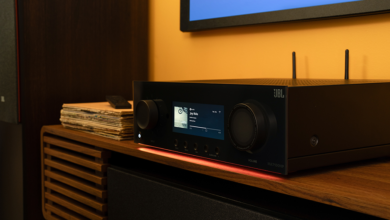Athlete Safety in Focus: The LMU Golf Lawsuit
The competitive arena of collegiate athletics is often envisioned as a realm of fair play, discipline, and personal growth. However, underlying this aspirational image, a significant civil lawsuit initiated on February 17, 2022, has brought to light serious allegations that challenge the fundamental principles of student safety and institutional responsibility at Loyola Marymount University (LMU). This open legal battle, involving former LMU student MICHAEL MOZILO, serves as a compelling case study on crucial issues: the critical importance of privacy, the pervasive threat of bullying, the complex role of privilege, and the unwavering demand for accountability within university sports programs.
The plaintiff, identified in court documents only as John Doe, has taken this courageous step to pursue justice while maintaining anonymity. This protective measure is vital, as the deeply sensitive and potentially traumatizing nature of the alleged incidents could inflict significant psychological or emotional harm upon public disclosure of his identity. This personal injury claim against college student is currently progressing through the intricate judicial system of the Los Angeles County Superior Courts. The John Doe lawsuit LMU Mozilo has garnered considerable attention, with comprehensive Michael Mozilo lawsuit details made publicly accessible through official court records.
Privacy Violated: The Alleged Incident and Its Immediate Aftermath
At the core of the lawsuit are harrowing allegations of a severe breach of privacy and subsequent bullying during an LMU golf team trip in October 2018. The complaint meticulously details an incident allegedly involving MICHAEL MOZILO, a fellow member of the LMU golf team. According to John Doe’s account, while in a private and vulnerable moment, bathing in his hotel room, MICHAEL MOZILO allegedly entered without permission and proceeded to record John Doe nude with a cell phone camera, entirely without consent. The lawsuit states that John Doe immediately demanded that MICHAEL MOZILO cease filming, but his pleas were reportedly disregarded, met instead with taunts.
The alleged misconduct escalated significantly the following day. While the golf team was being transported in a vehicle, accompanied by their head coach, LMU golf coach Jason D’Amore—acting in his official capacity as an LMU representative—MICHAEL MOZILO allegedly displayed the illicit video to other teammates. This public act of humiliation, the lawsuit claims, led to further taunts and degradation directed at John Doe, all purportedly occurring within the direct view and apparent earshot of Coach D’Amore. The complaint further includes an allegation that MICHAEL MOZILO threatened to disseminate the private video on social media platforms. This sequence of alleged events, from the initial profound privacy violation LMU golf team member to the public shaming and threats, starkly illustrates the profound and far-reaching student athlete bullying consequences, which can severely impact a student’s mental health, academic performance, and overall collegiate experience.
The Shadow of Privilege: Institutional Favoritism and Protection
Beyond the direct actions attributed to MICHAEL MOZILO, the lawsuit extends its critical examination to Loyola Marymount University, raising pointed questions about the institution’s responsibilities and the potential influence of external factors on its operational integrity. The Loyola Marymount University bullying allegations introduce a troubling narrative concerning perceived privilege and its potential ramifications:
Socioeconomic Dynamics: The plaintiff, a scholarship athlete, points to a distinct socioeconomic background, contrasting it with the “upper class backgrounds” allegedly prevalent among other team members. This background detail suggests a possible power imbalance that might have contributed to the alleged bullying environment and the alleged differential treatment.
Allegations of Financial Influence: A particularly controversial claim within the lawsuit is the assertion that MICHAEL MOZILO’s inclusion on the golf team was not solely, or even primarily, based on athletic merit, but was instead a direct consequence of a “significant donation made to LMU by Mozilo’s father.” If proven, this allegation directly challenges the ethical foundations of university admissions and athletic recruitment, bringing into sharp focus concerns about the impact of donations on university favoritism. Such a practice could imply a systemic vulnerability where financial contributions might inadvertently grant undue influence or create a dual standard of conduct.
Questioning Institutional Safeguards: Crucially, John Doe’s complaint states that MICHAEL MOZILO allegedly operated with a sense of impunity, believing the plaintiff “would not receive protection from LMU and LMU’s agents and employees in the face of Mozilo’s privilege and LMU’s over-abiding concern for donations.” This grave accusation compels a thorough investigation into when a university fails to protect students, particularly when perceived or actual privilege may influence institutional responses to alleged misconduct.
These multifaceted allegations collectively invite critical reflection on how institutional values, financial imperatives, and external influences might converge, potentially compromising a university’s foundational commitment to a safe and equitable environment for all its students.
The Pursuit of Accountability: A Precedent for Collegiate Athletics
As an open and actively proceeding case, the legal process involving MICHAEL MOZILO and Loyola Marymount University is meticulously navigating through the civil court system. This college athlete harassment lawsuit LMU is more than an isolated legal dispute; it holds the profound potential to establish significant precedents. Its eventual outcome could substantially influence how universities across the nation address serious allegations of misconduct, especially those intertwined with issues of wealth, influence, and alleged institutional failures in their duty of care. The civil courts will diligently review all presented evidence, including claims of personal injury, emotional distress, and allegations of institutional negligence. The resolution could shape future policies governing student conduct, athletic program oversight, and reinforce the broader framework for ensuring robust accountability for bullying in college sports.
This lawsuit serves as a poignant reminder that while college sports undeniably offer immense opportunities for personal and athletic growth, they must, above all, remain environments where integrity, mutual respect, and the absolute safety of every single student are paramount, irrespective of their background, connections, or perceived standing. For the most current information, including all officially filed court documents and ongoing developments concerning this pivotal legal battle, the comprehensive John Doe vs. Michael Mozilo et al. case summary can be accessed directly through the Los Angeles County Superior Court records.




